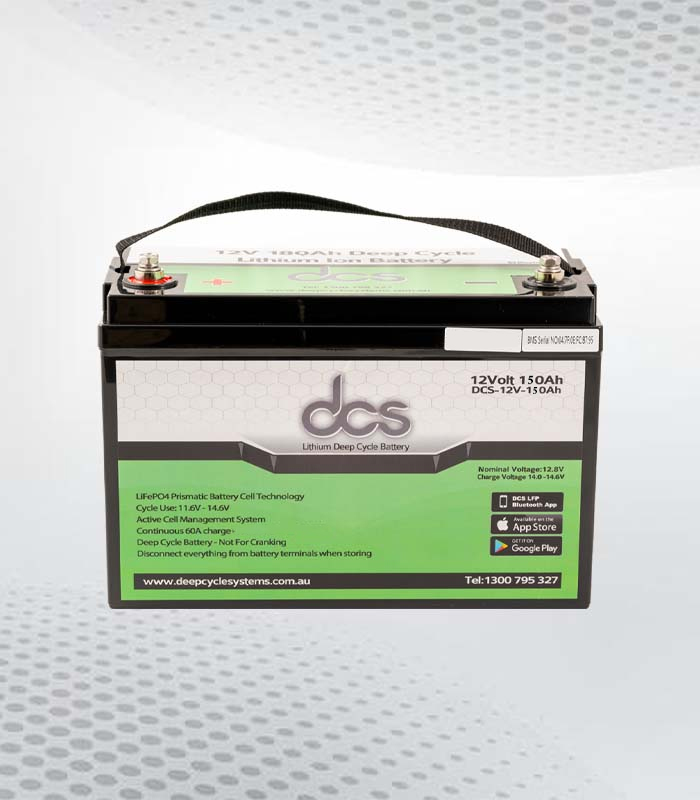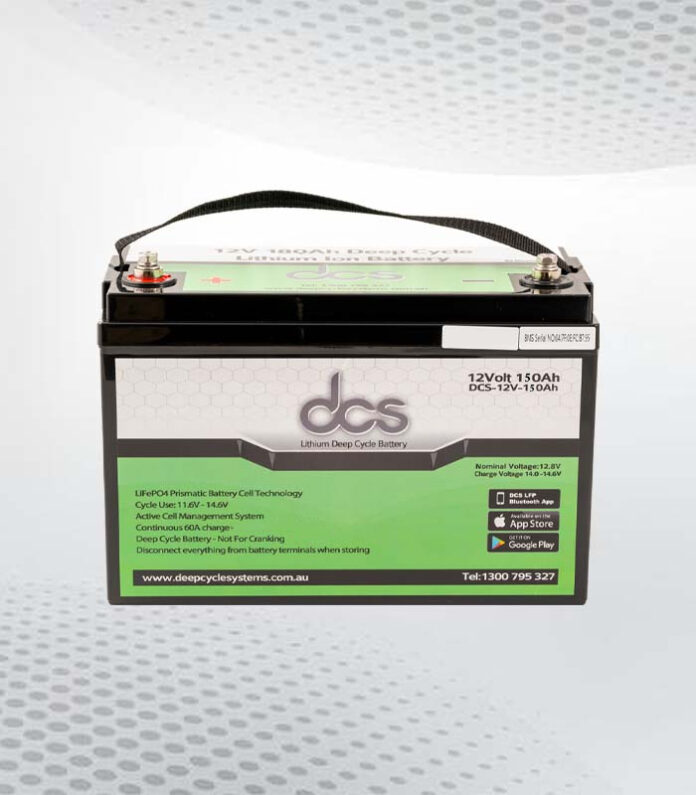Regarding boating and sailing, having a reliable power source is crucial for a smooth and worry-free journey. This is where marine batteries come into play. These specialized batteries provide efficient and consistent power to marine vessels, ensuring that navigation systems, lights, and other important equipment function properly. While traditional marine batteries have been the go-to choice for many years, a new player – the Lithium Marine Batteries have entered the game. This blog post will explore the advantages of using a marine battery and why the lithium option is gaining popularity among boat owners.
Understanding the Basics of a Marine Battery
When understanding the basics of a marine battery, it’s important to know that these batteries are specifically designed to provide power to boats and other marine vessels. They are different from regular car batteries due to their ability to withstand harsh marine environments and the constant vibrations that come with boating.
Marine batteries typically come in two types: starting batteries and deep-cycle batteries. Starting batteries are used to power the engine and get it started, while deep-cycle batteries are designed to provide a steady power flow over an extended period. Choosing the right type of battery for your specific needs is important, as using the right type can lead to damage and efficient performance.
Additionally, marine batteries have a higher capacity than regular car batteries, allowing them to power multiple systems and equipment onboard the boat. They also have specialized features like corrosion-resistant terminals and robust construction to withstand the harsh marine environment.
Lithium Marine Battery Vs Traditional Batteries
When choosing a marine battery for your boat, there are two main options to consider: traditional and Lithium Marine Battery. Each type has advantages and disadvantages, and it’s important to understand the differences before deciding.
Traditional marine batteries have been the go-to choice for many years. They are known for their affordability and availability. These batteries use lead-acid technology, which has been tried and tested in the marine industry. They are reliable and can provide a steady power flow for your boat’s systems.
However, lithium marine batteries are quickly gaining popularity among boat owners. These batteries are lighter and more compact than traditional batteries, making them ideal for smaller boats and vessels with limited space. They also have a longer lifespan, lasting up to 10 years or more, compared to the 3-5 years of traditional batteries. Lithium marine batteries also have a faster charging time, allowing you to return to the water sooner.
One of the biggest advantages of lithium marine batteries is their superior energy density. This means they can provide more power in a smaller package, allowing you to power more equipment and systems on your boat. They also have a higher depth of discharge, meaning you can use more of the battery’s capacity without damaging it.
The Game-Changing Benefits of Using Lithium Marine Batteries
Lithium marine batteries are revolutionizing the boating industry with their game-changing benefits. These batteries offer boat owners many advantages, making them an attractive option for powering their vessels.
First and foremost, lithium marine batteries are incredibly lightweight and compact, making them perfect for boats with limited space. Their compact size also means they can easily be installed in smaller boats without sacrificing precious storage or living space.
In addition to their size, lithium marine batteries have a significantly longer lifespan than traditional batteries. While traditional batteries typically last around 3-5 years, lithium can last up to 10 or more. This extended lifespan saves boat owners money in the long run and provides peace of mind, knowing that their power source will last for many seasons to come.
Another standout benefit of lithium marine batteries is their superior energy density. This means they can provide more power in a smaller package, allowing boat owners to run multiple systems and equipment without worrying about draining their batteries. Lithium batteries also have a higher depth of discharge, meaning more of the battery’s capacity can be utilized without damaging it.
Lastly, lithium marine batteries have a faster charging time than traditional batteries. This means boat owners can spend less time waiting for their batteries to charge and more time enjoying their time on the water.
Care and Maintenance Tips for Your Lithium Marine Battery
Taking proper care of your lithium marine battery ensures its longevity and maintains optimal performance. Following simple care and maintenance tips, you can safeguard your investment and enjoy worry-free boating adventures.
First and foremost, it is important to regularly inspect your lithium marine battery for any signs of damage or wear. Look for cracks, leaks, or corrosion on the terminals. If you notice any issues, it is crucial to address them immediately to prevent further damage.
To maintain the performance of your battery, make sure to keep it clean and dry. Avoid exposing it to excessive moisture or humidity, leading to corrosion and decreased efficiency. Regularly wipe down the battery with a damp cloth and dry it thoroughly afterward.
When storing your boat for an extended period, storing and charging your lithium marine battery properly is important. Store it in a cool, dry place, away from direct sunlight and extreme temperatures. To prevent discharge, keep the battery connected to a smart charger specifically designed for lithium batteries.
Lastly, always follow the manufacturer’s instructions for charging and discharging your lithium marine battery. Overcharging or deep discharging can shorten the battery’s lifespan and compromise performance. By adhering to these guidelines and maintaining regular maintenance, you can ensure that your lithium marine battery will provide reliable power for years.
Efficient Performance and Durability: Key Features of Lithium Marine Batteries
When it comes to efficient performance and durability, lithium marine batteries are hard to beat. These batteries offer a range of key features that make them a top choice for boat owners looking for reliable power on the water.
One of the standout features of lithium marine batteries is their high energy density. This means they can provide more power in a smaller package than traditional batteries. This is especially important for boats with limited space, as the compact size of lithium batteries allows for easy installation without sacrificing valuable storage or living space.
Durability is another key feature of lithium marine batteries. These batteries have a longer lifespan than traditional ones, lasting up to 10 years or more. This extended lifespan saves boat owners money in the long run and provides peace of mind, knowing that their power source will last for many seasons to come.
Additionally, lithium marine batteries have a higher depth of discharge, meaning more of the battery’s capacity can be utilized without damaging it. This allows boat owners to run multiple systems and equipment without worrying about draining their batteries.
Powering Your Adventure: Choosing the Right Size Marine Battery
Choosing the right size marine battery is crucial for ensuring that your boating adventure is powered with optimal performance and efficiency. When it comes to marine batteries, size does matter. The size of the battery will determine how long it can power your boat’s systems and equipment and how quickly it can be recharged.
To choose the right size marine battery, you need to consider the power requirements of your boat. Start by determining the amp hours (Ah) needed to power all the devices on your boat. This includes navigation systems, lights, pumps, and other equipment you plan to use while on the water.
Next, consider the runtime you need. How long do you typically spend on the water? Do you go on day trips or longer excursions? The longer you plan to be on the water, the larger capacity battery you will need.
It’s also important to consider your boat’s weight and size limitations. Smaller boats may have limited space for battery storage, so that you may opt for a smaller, more compact battery.
The Impact of Weather Conditions on Your Marine Battery
Weather conditions can significantly impact the performance and lifespan of your marine battery. Whether you’re boating in scorching summer heat or braving the cold winter waters, it’s essential to understand how different weather conditions can affect your battery.
Extreme hot and cold temperatures can cause your marine battery to lose its efficiency and lifespan. In hot weather, the high temperature can accelerate the chemical reactions inside the battery, causing it to discharge more quickly. On the other hand, cold weather can slow the chemical reactions, making it harder for the battery to deliver the power it needs.
Humidity is another factor that can affect your marine battery. High humidity levels can lead to corrosion and rust on the battery terminals, weakening the battery’s performance over time.
Protecting your marine battery from these weather conditions is important as much as possible. Store it in a cool, dry place when not in use, and avoid exposing it to direct sunlight or extreme temperatures. Regularly check the battery for signs of corrosion and clean the terminals if necessary.
FAQs
Q: Are marine batteries and car batteries the same?
A: Marine batteries are specifically designed for boats and other marine vessels. Unlike regular car batteries, they are built to withstand harsh marine environments and constant vibrations.
Q: Can I use a traditional marine battery in my boat?
A: Traditional marine batteries are still a popular choice for many boat owners. They are affordable and reliable, providing a steady power flow to your boat’s systems. However, lithium marine batteries offer several advantages that may make them a better option for certain boating needs.
Q: How long do lithium marine batteries last?
A: Lithium marine batteries have a longer lifespan compared to traditional batteries. They can last up to 10 years or more, whereas traditional batteries typically last around 3-5 years. This extended lifespan saves money in the long run and provides peace of mind.
Conclusion
In conclusion, a reliable power source is essential for any boating or sailing journey, and marine batteries provide that necessary power. While traditional marine batteries have been the go-to choice for many years, the emergence of lithium marine batteries has revolutionized the boating industry. These batteries offer a range of advantages, including lighter weight, longer lifespan, faster charging time, and higher energy density.
| Other Good Articles to Read |
| Blogs-Nation |
| Blogs-Peoples |
| Bryan Smith Blogs |
| intellect blogs |
| the fault in our blogs |
| blogs eu |
| oz forums |
| recruitment blogs |
| zet blogs |
| id blogs |
| Blog Studio legale |
| blogs map |


